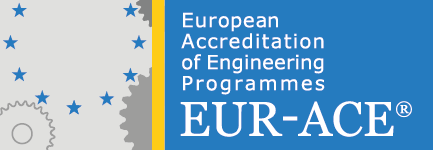Master's Degree Programme in Information and Communication Technology: Cyber Security
Become a professional in cyber security technology and engineering!
In the Cyber Security track, you will gain knowledge, expertise and hands-on experience in the fields of cyber security and network security technology. The track focuses on cyber security technologies developed for networked systems and applications of the communication-intensive future.
Recent studies estimate a current workforce gap of 3.5 million cyber security experts globally and more than 300.000 in Europe with a growing trend. In ICT, Cyber security is currently one of the fields where companies have most difficulties in finding qualified talent. With the uniquely built expertise profile in your Master’s degree from the Cyber Security track, you will become one of those most sought after cyber security professionals and specialists needed by the ICT industry! In addition to pursuing a career in the ICT industry, as a graduate of the cyber security track you are also eligible to apply for admission to Ph.D. studies in the field.
In the Cyber Security track, we focus on cyber security technologies developed for networked systems and applications of the communication-intensive future. The technological topics covered include, among others, system and network security, security of Internet-of-Things (IoT) systems and applications, ethical hacking (penetration testing) and designing secure systems. You will explore both technological and theoretical scientific advances in the field and apply them to practice. As one of our graduates, you will have a strong technological, theoretical, and practical understanding of cyber security. With these new skills and knowledge, you can proceed to building a successful career in securing the ICT industry.
The Cyber Security track is a member of the EU funded SPECTRO Consortium (Specialised Education Programmes in Cybersecurity and Robotics). For more information, please see the SPECTRO website.
The Cyber Security specialisation track is a member of the EIT Digital Master School in Cyber Security. For more information, please see the EIT website.
Entry requirements
General Requirement
You are an eligible applicant for Master’s degree studies if
- you have a nationally recognized first cycle degree – normally a Bachelor’s degree – from an accredited institution of higher education,
- your degree corresponds to at least 180 ECTS (European credits) or to three years of full-time study,
- your degree is in a relevant field for the Master’s degree programme that you’re applying to. Please check the section on track-specific admission requirements for detailed degree requirements.
Language Requirements
Applicants must have excellent English language skills and a certificate that proves those skills. You can indicate your language skills by taking one of the internationally recognized English language tests.
Applicants must reach the minimum required test results to be considered eligible to the University of Turku. No exceptions will be made. Read more about the language requirements here.
Study right
It is not possible to have more than one Bachelor’s or Master’s study right at the same Faculty. Therefore, when accepting an offered study place, the student will lose any previous BSc. or MSc. study right at the Faculty of Technology at the University of Turku.
Before you start preparing your application, always read the full admission requirements on the application portal Studyinfo.fi
The applicant’s previous degree on the basis of which s/he is seeking admission to the Master’s Degree Programme in Information and Communication Technology must be in a relevant field of study. Relevant fields of previous studies for the Cyber Security specialisation track are:
- Communication and Network Systems
- Software Engineering
- Computer Science
- Computer Technology
- Information Technology
- Other relevant fields of studies where sufficient knowledge of computer network technology, programming, and mathematics is achieved.
You may not apply to more than one specialization track within the same Master’s Degree Programme at the University of Turku. Therefore, you should carefully consider that your educational background is suitable enough for the track that you are applying to.
The decision of admission will be based on:
- the relevance of the applicant’s awarded degree(s)
- the amount, relevance, and grades of the courses in the degree(s)
- the language test result (see Language requirements)
- the motivation letter and your answers to the optional questions included in the application
- the possible relevant work experience
- the possible interview.
In addition to the education diploma and language certificate, you should include testimonials of any relevant work experience in your application.
The academic evaluation is made only for complete applications that are received during the application period. Any preliminary assessment of suitability or chances for admission will not be given.
Programme in brief
A. Advanced-level studies in the major subject 40 ECTS
B. Thematic module or minor subject 20-25 ECTS
C. Elective studies 15-20 ECTS
D. Studies supporting Master’s thesis 10 ECTS
E. Master of Science in Technology thesis 30 ECTS
See the curriculum.
The Cyber Security track joined the EIT Digital Master School in Cyber Security in fall 2018. The EIT Digital Master School is a two-year Master's programme jointly run by 20 European top universities, renowned researchers and leading businesses. The programme leads to a double degree and an EIT labeled Certificate. The Cyber Security major acts as both an entry site and an exit site for the EIT Master School. The students start their cyber security studies in one of the universities offering the entry year studies, and move to another university in another country for the exit (specialization) year. In the field of cyber security, the cyber security major subject at UTU is the only degree programme in Finland to participate in the EIT Digital Master School. The exit year specialization at the University of Turku is Security of Networked Systems. For more information please see https://masterschool.eitdigital.eu/programmes/cse/
The Cyber Security track is also a member of the intra-European SPECTRO consortium in Cyber Security and Robotics. The consortium addresses the growing need and workforce gap of professionals in these fields by, among others, developing specialized Master’s programmes and self-standing modules. The University of Turku is the only cyber security university partner from Finland to participate in the consortium. For more information, please see https://www.eitdigital.eu/spectro/
The University of Turku fosters students' professional growth and global perspective by promoting internships and student exchanges. Every degree student can take advantage of these opportunities – all internships come with a guaranteed subsidy, and every exchange programme includes a grant.
The Cyber Security specialisation track focuses on security technologies for networked systems and applications of the communication-intensive future based on research. The technological topics covered include, among others, system and network security, security of Internet-of-Things (IoT) systems and applications, ethical hacking (penetration testing) and designing secure systems. The education is based on current cyber security research and technologies. Students obtain profound and substantial education and expertise in the field of secure networked systems. Cyber security is approached in a multi-disciplinary fashion with compulsory studies also in cryptography and information security management.
In the Master's thesis, the student must prove his/her ability to do scientific work, master research methods, knowledge of the research field, and skills in scientific writing. In writing the Master’s thesis, the student needs to apply their technological skills, abilities, and expertise into identifying an engineering problem, studying its relevance to the field, proposing and designing a solution to the problem, testing and analysing the solution, and evaluating its usefulness. The thesis is often commissioned by a company, which means that an efficient and capable student could be directly employed by the commissioning company, which could lead to a successful career in the industry. On the other hand, a scholarly-oriented student might choose a thesis topic relating to the research conducted by a research group at the University and apply for the position of the doctoral candidate upon completion of an academically distinguished Master’s thesis.
Topics of recently completed Master’s theses include:
-
Mitigating Modern Organization-Wide Network Threats and Data Leakages
-
Evaluation of Machine Learning Classifiers for Mobile Network Intrusion Detection Systems
-
Software Based Malware Analysis and Mitigation in Virtual Machines
-
Frequent Attack Dictionary Decision Tree Method for Advanced Signature-Based Intrusion Detection
-
Security requirements in tradable IoT ecosystems
-
An Open Source Intelligence (OSINT) Framework for Online Investigations
-
Applying Information-Motivation-Behavioral Skills Model to Improve Information Security Policy Compliance among Employees
-
Experimental Penetration Testing Teaching and Learning for High School Students Using Cloud Computing
-
Access Control Process for a SaaS Provider
-
A SystemC Simulator for Secure Data Transfer in Healthcare Internet of Things
Career prospects
The Master's degree from the Cyber Security specialisation track covers broadly the different topical areas of cyber security technology with focus on cyber security in networked systems. In addition to technological expertise, all graduates have studied mathematical cryptography and information security management as compulsory major subject studies, giving the graduates a true multi-disciplinary set of skills and knowledge in the field. Graduates benefit from the programme’s co-operation with companies in the region especially in terms of the optional Capstone projects and internships. Based on the choices made in the personal study plan and the resulting expertise profile of each student, successful career paths in the ICT sector as information security specialists and leaders are achievable in the Turku area as well as other regions in Finland and globally. In addition to pursuing careers in the ICT industry as cyber security specialists and leaders, graduates of the Programme are also eligible to apply for Ph.D. studies. The employment percentage of those holding an M.Sc.(Tech.) degree is very high in Finland.
The graduate’s unique expertise profile may lead to a career title of, for example, one of the following:
- Cyber Security Analyst
- Penetration and Vulnerability Tester
- Cyber Security Consultant
- Cyber Security Manager
- Network Security Specialist
- Information Security Specialist
- Cyber Security Entrepreneur
- System / Network Administrator
- Cryptography Engineer
- Network Engineer
- Business Information Security Officer
- Chief Information Officer
- Chief Information Security Officer
- Head of Information Security
- Head of Corporate IT
The employment percentage of those holding an M.Sc.(Tech.) degree is very high in Finland. The 2022 (ISC)2 Cybersecurity Workforce Study estimates that there is currently a global gap of 3.5 million cybersecurity professionals while in Europe the current workforce gap is more than 300.000 cybersecurity professionals with a growing trend. According to the 2021 IT Skills and Salary Report by Global Knowledge, cybersecurity is the field in which companies have most difficulties in finding qualified talent to join their workforce. Cybersecurity skills are in high demand: according to the report, for the sixth straight year, IT professionals in the field of cybersecurity were the most sought after experts.
The information-intensive industry has become one of the most important business sectors in Finland, and in the information society, information has become one of the most relevant products. In Europe and globally, ICT has a critical role in improving the profitability of the industry and in responding to the needs of society. Securing the business sector and the products is vital in the modern era. In addition to pursuing careers in the ICT industry as cyber security specialists and experts, graduates of this track are also eligible to apply for admission to Ph.D. studies in the field.
Based on the choices made in the personal study plan and the resulting expertise profile of each student, successful career paths in the ICT sector as information security experts and leaders are achievable in the Turku area as well as other regions in Finland and globally.
The graduate’s unique expertise profile may lead to a career title of, for example, one of the following:
- Cyber Security Analyst
- Penetration and Vulnerability Tester
- Cyber Security Consultant
- Cyber Security Manager
- Network Security Specialist
- Information Security Specialist
- Cyber Security Entrepreneur
- System / Network Administrator
- Cryptography Engineer
- Network Engineer
- Business Information Security Officer
- Chief Information Officer
- Chief Information Security Officer
- Head of Information Security
- Head of Corporate IT
Master's Degree (Technology) provides eligibility for scientific postgraduate degree studies. Postgraduate degrees are doctoral and licentiate degrees. Degrees can be completed within the University of Turku Graduate School.




